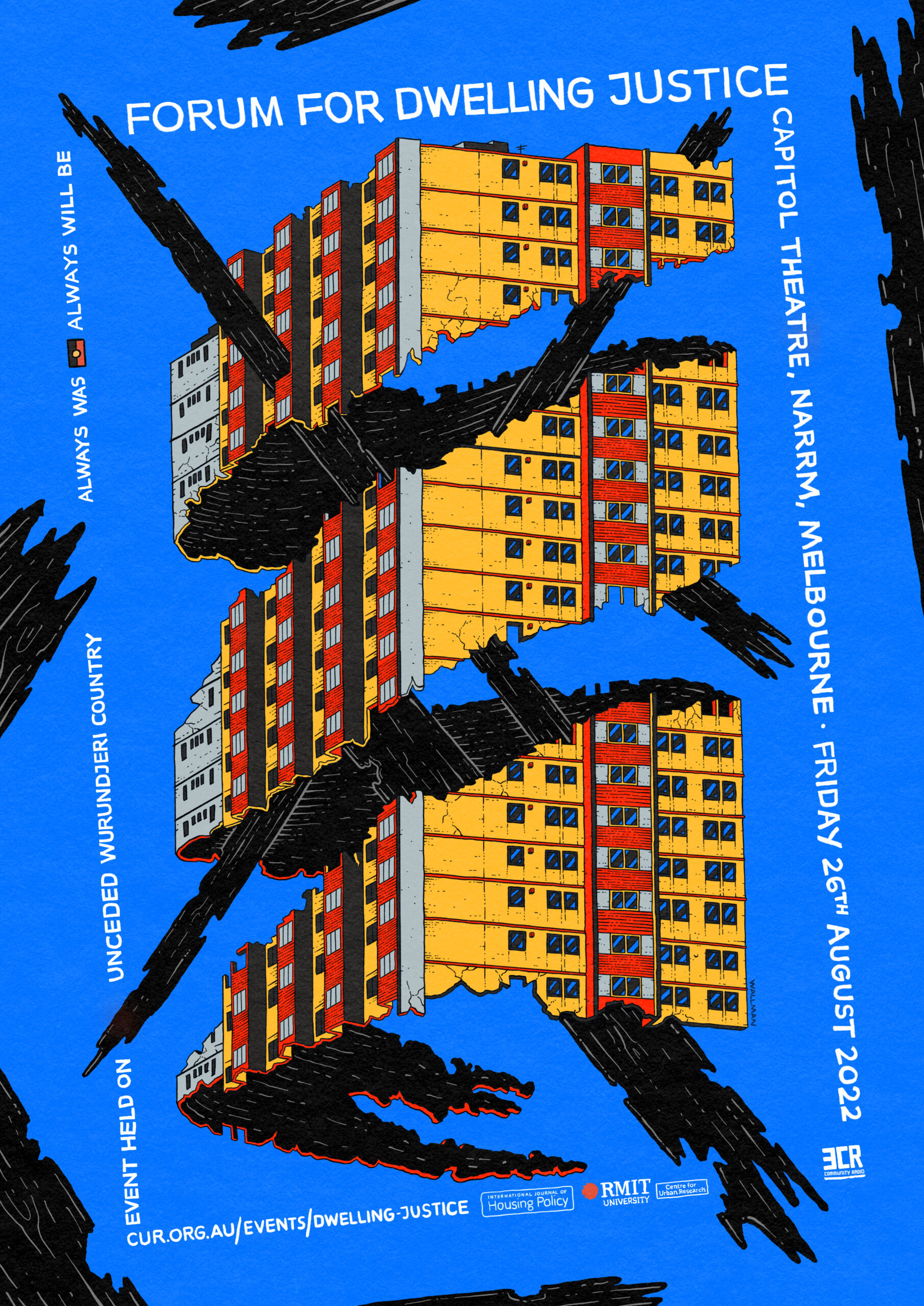
IJHP is excited to announce this
Special Issue and Workshop on Dwelling, Dissent and Housing Policy
Special Issue Guest Editors and Workshop Conveners: Dr David Kelly and Prof Libby Porter
Nearly two billion people globally are inadequately housed (UN-Habitat 2021). Australia’s own housing crisis has been deepening year on year with at least 727,000 people now in urgent housing need (Lawson et al. 2019) and an estimated 120,000 homeless on any given night (AIHW 2021). Housing prices and rent are growing at astonishing rates, with current policy settings fuelling a housing affordability crisis (Maalsen, Rogers, and Ross 2020; Pawson, Milligan, and Yates 2020). COVID-19 has compounded this dwelling-related stress, as the economic impacts increase unemployment and alongside it rental arrears, mounting debt and insecurity (Biddle et al. 2020). Recent research has identified a cohort of tenants “lined up on the brink of a financial precipice” (Baker et al. 2020). More worryingly, the intensification of environmental, political and social brittleness has “increased the probability that structural contingency will create manifest crisis situations in ordinary existence for more kinds of people” (Berlant 2011). That these urgent social problems of housing precarity and marginalisation are both deepening and expanding demonstrates how conventional housing policy responses such as affordable housing or temporary accommodation are insufficient.
Policy settings have intensified housing precarity, catalysing the emergence of generation rent (Hearne 2020), and accelerated new forms of homelessness, incarceration and landlessness. At work are distinct contemporary formulations of racial banishment (Roy 2019) – illegalised presence and forced mobility of racialised classes that proliferate containment logics – and an emerging condition of displaceability (Yiftachel 2020) – of being vulnerable to involuntary distancing from rights and resources. Concurrent processes are also evident: the financialization of housing and its digitisation is fuelling the growth of an increasingly vulnerable and unmoored rentier class (Aalbers 2017; Rolnik 2019; Sadowski 2020); the criminalisation of poverty, homelessness and asylum seeking is leading to more punitive and performative forms of enforcing and arresting mobility (Crane, Elwood, and Lawson 2020; Davies and Isakjee 2019; De Genova and Roy 2020; Young and Petty 2019); property regimes continually reify and innovate the dispossession of Indigenous peoples from traditional lands (Blatman-Thomas and Porter 2019). This myriad of processes is at once global and parochial. In settler colonial contexts, and other places where the afterlife of imperialism continues to resonate, housing and land policies have always been deployed to eradicate some relations and renew others (Strakosch 2016). Colonial logics that have always had racial banishment and displaceability at their core are increasingly apparent in a widening and diffuse range of extractive practices, militarisms, carceral institutions and revanchist urban practices. Contemporary forms of housing precarity and injustice are deep and systemic and every economic and public institution is scaffolded by the relations of housing.
While housing policy governs and mediates many of these precarities, the processes and infrastructures that enable and restrict contemporary housing experiences exist beyond the conventional boundaries of ‘housing policy’. Yet in the housing policy research field there is a notable absence of dialogue and engagement with the underlying logics that drive these intensifications and the lived realities of housing they produce. Housing policy research has so far failed to keep pace with the ever-changing relations of housing in contemporary life, partly because the mechanisms and infrastructures are changing so fast, often obscuring the terrain of exactly where and through what structures housing precarity, displaceability and eradication are produced. The debate about financialisation of housing is important, as this does identify the relationalities beyond conventional housing policy. But it tends to miss the fundamental break in attachment between people and place, partly because of the way that financial logics themselves work. How we think about the relationalities of housing requires locating research and counterinsurgencies in fields that reinvent orthodox housing policy, research and activism.
See the attached flyer and contact the guest editors for details.

